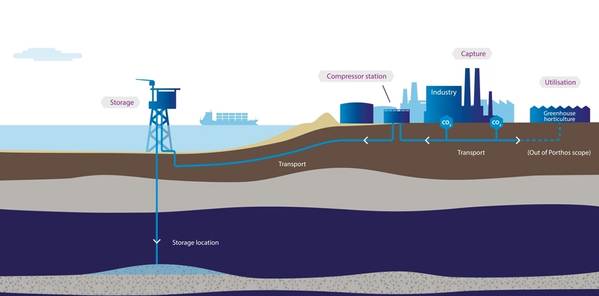
The Netherlands' highest court on Wednesday ruled that construction of a major carbon capture project in the Rotterdam port area can go ahead, despite objections by environmental activists.
The planned "Porthos" project would be Europe's largest carbon capture and storage facility and is expected to reduce the country's annual CO2 emissions by about 2% for a period of 15 years from 2026.
Under the project, CO2 emitted by refineries and chemical plants operated by Shell, Exxon Mobil, Air Liquide, and Air Products would be transported to empty gas fields under the North Sea.
However, the court said in a preliminary ruling in November the project might have to be halted because it did not meet European environmental guidelines.
The environmental activists that brought the case argued that nitrogen oxide emissions caused by the construction of Porthos would be detrimental for neighboring nature reserves and were thereby in violation of European law.
But the court now says research commissioned by the government had objectively shown that the effects of construction on the nature reserves would be limited and temporary.
Porthos' developers, which include the Rotterdam port authorities and Dutch gas company Gasunie, said they now expected to make a final investment decision in the coming weeks, with the aim of starting construction early next year.
Capturing the CO2 emitted by large industries is seen by many experts as instrumental to the Dutch government's aim for a 55% reduction of those emissions by 2030, relative to 1990 levels.
The ruling on Porthos was the result of a drawn-out legal fight to reduce emissions of nitrogen oxides, which in large quantities can threaten specific types of plants and the animals that feed on them.
The Netherlands has struggled for years with high nitrogen emissions due to relatively large numbers of livestock and heavy use of fertilisers by farmers, as well as traffic and construction in the densely populated country.
The Council of State ruled in 2019 that emissions by Dutch builders and farmers were in breach of European laws, a ruling that crippled construction and led to a massive protests by farmers.
The government has repeatedly vowed to drastically cut emissions, but has so far failed to determine exactly how to do so.
(Reuters - Reporting by Bart Meijer;Editing by Andrew Cawthorne, Tomasz Janowski and Alison Williams)



